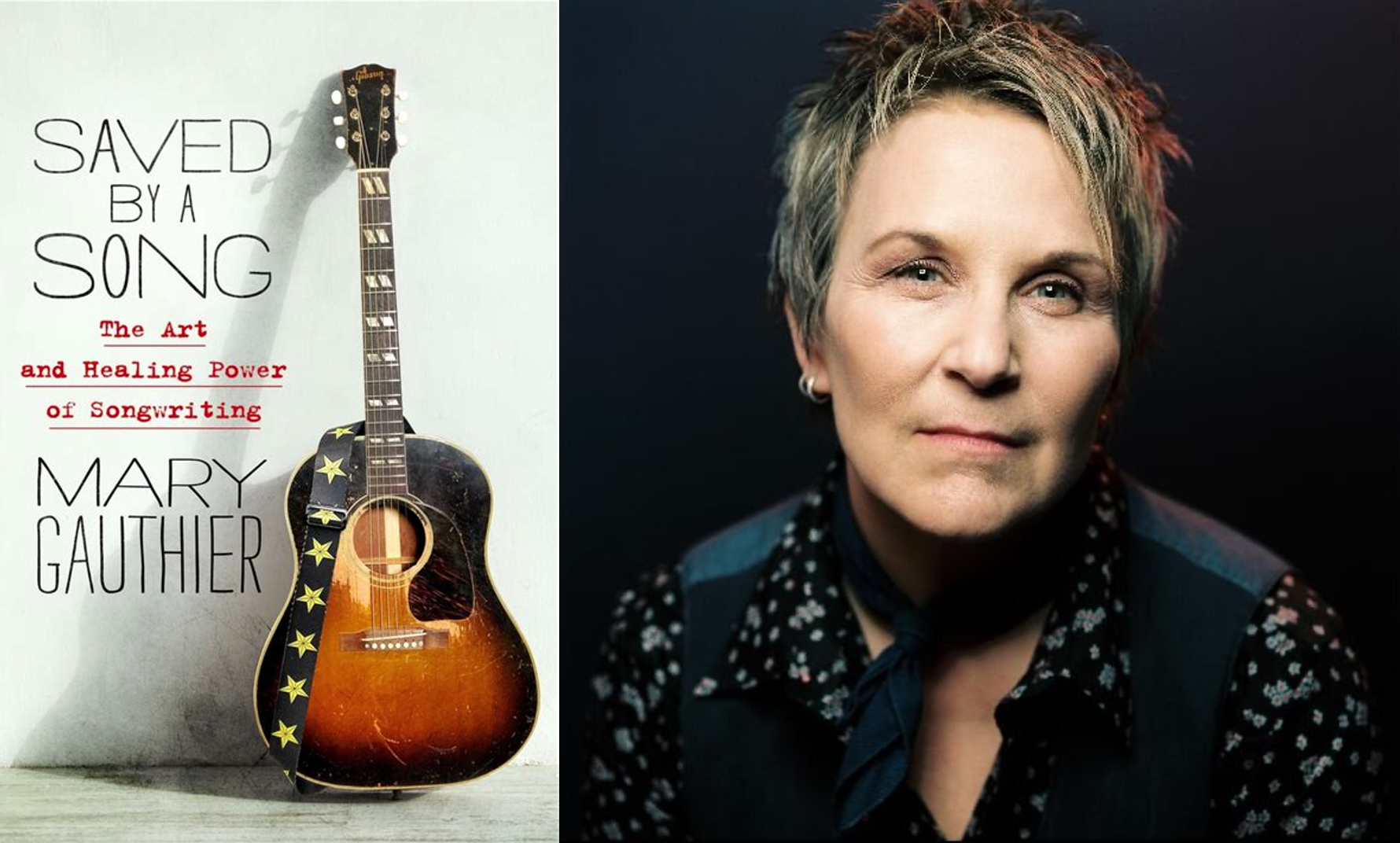Book Review: "Saved By a Song"
A memoir by a celebrated singer-songwriter ends up holding more than expected

To the aphorism, “Don’t judge a book by its cover,” you may want to add, “Don’t judge a book by its ostensible subject matter” — in this case, songwriting.
I first learned of Mary Gauthier’s new memoir, “Saved By a Song: The Art and Healing Power of Songwriting,” on Brian Koppelman’s “The Moment” podcast. Koppelman’s interview with Gauthier was extraordinary, so while the scope of the book — a memoir about songwriting — didn’t appeal to me organically (even though I love and play music), I thought I’d give it a spin.
Hello, Kindle sample!
Next day: Hello, Kindle purchase!
Reaching the final word of the Epilogue: Hello, hardback copy for my bookshelf!

Gauthier’s voice in the book is kind and open, but also blunt and unsparing when needed. She’s someone who has confronted and tamed many demons, mainly through songwriting, but also through therapy of various kinds and the journeys involved in completion and fulfillment. As a result, she doesn’t flinch. Songwriting may seem a strange wellspring of strength, but Gauthier makes it clear that great songs come from people who have been through a cleansing personal fire, and come out crackling. As she writes about the difficult job of a songwriter:
Mean every word. Sing it simple. Sing it plain. Sing it clear. Sing it true.
There are beautiful lines sprinkled throughout the book, like:
. . . grace is getting what you don’t deserve, and mercy is not getting what you do deserve . . .
Gauthier also selects superb quotes, like this from Woody Guthrie:
The note of hope is the only note that can help us or save us from falling to the bottom of the heap of evolution, because, largely, about all a human being is, anyway, is just a hoping machine.
Going into the book, I expected stories of Nashville and New Orleans, cities I associate with Gauthier and her songs. Such stories are plentiful, but I was surprised to learn she had been a successful chef in Boston, found this unfulfilling (I’m underselling it), and then had a breakthrough open mic in the town where I currently live. I was also surprised to learn she was adopted, another point of connection, and wrote a searing and poignant album about this (The Foundling).
Gauthier’s personal journey intermingles nicely in the book with her journeys helping others discover musical devotions and catharses of their own. By using a single song’s lyrics as a signpost to start each chapter, the book is given creative shape and always carries Gauthier’s music with it.
One of the most compelling sections involves her work with soldiers through Songwriting With:Soldiers (SW:S). Beautiful songs have emerged from these collaborations, and Gauthier produced an album (Rifles and Rosary Beads) from her collaborations with veterans. Studies of the benefits have shown that working together in this way decreases symptoms of PTSD for soldiers, with 100% of veterans recommending the program for others. The songs and stories in this section of the book alone are worth the price of admission.
It’s an inspiring, enriching, and illuminating read. Gauthier’s memoir has made me realize many things, helped me and friends find new roads to explore, and reinforced my sense that, as Tom Petty put it:
Music is probably the only real magic I have encountered in my life. There’s not some trick involved with it. It’s pure, and its real. It moves, it heals, it communicates and does all these incredible things.
Gauthier describes herself as a troubadour, outlining the role as follows:
People are lonely, yearning for meaningful connection. People need hope. They need to believe in something. People are hurting. Many are traumatized, afraid. People need love. But love is hard, so much harder than they expected. I understand because I feel these things too. It’s why I became a troubadour.
Her book is an extended prose song of hope and redemption. Don’t miss this one.
Highly Recommended.